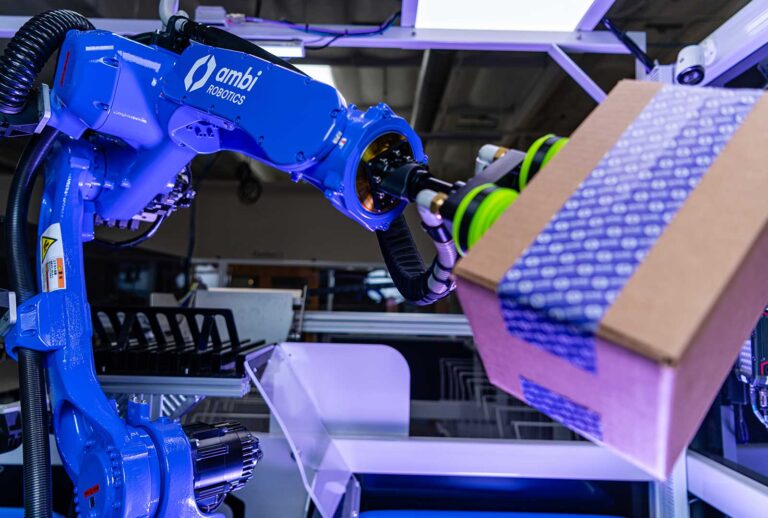If You Bought It, A Truck Brought It
Robert Brown, Senior Director of External Affairs, TuSimple, Jordan Coleman, General Counsel & Vice President of Policy, Kodiak Robotics, and Jonny Morris, Head of Public Policy & Communications, Embark Trucks joined Grayson Brulte on The Road to Autonomy podcast to discuss the current state of the autonomous trucking industry.
The conversation begins with Robert Brown sharing his thoughts on the current state of the autonomous trucking industry from a policy perspective.
We are doing quite well as an industry. It is a testament to the core folks that work in this industry. We work very closely at a State and Local level in all of the States that we operate in. We all come from the adage that we do not like to surprise anyone.
– Robert Brown
Expanding upon Robert’s comments, Jordan talks about the efforts that are being made around education and building trust with elected officials and regulators.
Trust is absolutely paramount in this industry. Showing that deep commitment to engagement on a State, Regional and Local level. As well as that deep commitment to building those relationships first.
– Jordan Coleman
Rounding out the conversation about the current state of autonomous trucking, Jonny shares a detailed overview of policy and the regulatory environment.
Even though autonomous trucking is cutting-edge technology, it is an emerging industry. We are not entering into a blank slate from a regulatory environment perspective. There are plenty of requirements, rules, authorities that exist in the trucking industry today.
– Jonny Morris
Putting the regulatory environment into perspective, Grayson asks Robert why Arizona, New Mexico, and Texas are emerging as the leading hubs for the testing and deployment of autonomous trucking.
It has a lot to do with the regulatory environment. All three States now have legislation on the books that allows [autonomous trucking] testing and deployment.
– Robert Brown
In January 2021, Kodiak successfully completed a disengage-free customer delivery from Dallas to Houston, Texas. Grayson asks Jordan how the company prepared for the run from a policy perspective. Jordan explains that before Kodiak started operations in Texas, the company met Governor Abbot’s office, State Legislators in both chambers, the Texas Department of Public Safety, the State Highway Patrol, and regional and local partners.
Shifting the conversation to California, Jonny talks about the importance of the California market for autonomous trucks and what the current state of autonomous trucking policy looks like in California. Robert chimes in about his love of living in San Diego and why autonomous trucking will create new high-paying jobs in California.
Looking at the priorities of the Governor and the California State Legislature, Jonny explains why the autonomous trucking industry is aligned with California’s goals on climate change and emissions.
Automation is something that can be adapted for any drivetrain, whether it’s diesel, natural gas, or electric vehicles. Furthermore what we have seen is that automation can take any drivetrain and make it more efficient because it is a more efficient driver than a human driver.
– Jonny Morris
With the electrification goals of California, Grayson asks Jordan if Class 8 trucks will ever become electric.
It’s absolutely a when, not an if.
– Jordan Coleman
As Jonny and Jordan clearly explained, the autonomous trucking industry is clearly aligned with the goals of California. With California’s unemployment rate currently holding at 8.3%, Robert talks about the positive economic impacts that autonomous trucking will have on the State and the new high-paying jobs that this industry will create.
If California does this, it is a true game changer from an economics perspective.
– Robert Brown
Highlighting the U.S. Department of Transportation VOLPE Macroeconomic Impacts of Automated Driving Systems in Long-Haul Trucking study as an example, Robert explains why autonomous trucking will create new high-paying jobs and have economic benefits on the U.S. economy.
With the industry projected to have a positive economic impact on the U.S. economy the group discusses how the industry interacts with lawmakers and regulators on a federal level. Jonny addresses the misnomers around what the autonomous truck industry does and does not need from a regulatory and legislative standpoint.
[There is a misnomer] that this is the wild west and there are no rules for autonomous trucks. The fact of the matter is that the trucking industry is heavily regulated at the federal level.
– Jonny Morris
Staying on the theme of misnomers, Jonny, Robert, and Jordan all address the workforce issue and clearly explain that if you are a truck driver today, you can retire a truck driver. There is an enormous need for high-quality truck drivers today partly due to the increase in e-commerce.
If you bought it, it’s been on a truck.
– Jordan Coleman
With e-commerce projected to grow another 18% in 2021, Robert and Jordan discuss how autonomous trucking is working to shore up the e-commerce supply chain.
All commerce is becoming e-commerce. It is all being shipped and it is all being shipped via truck. That only underscores the critical need for this technology.
– Jordan Coleman
Another critical need for this technology is for the shipping of fresh fruits and vegetables as The World Bank is projecting the global population to be 9.7 billion by 2050. Jordan, Jonny, and Robert discuss how autonomous trucks can reduce food spoilage and increase access to healthy foods.
Wrapping up the conversation, Jonny, Jordan, and Robert share their thoughts on the positive impact that autonomous trucking will have on society.
Follow The Road to Autonomy on Apple Podcasts
Recorded on Monday, June 14, 2021




